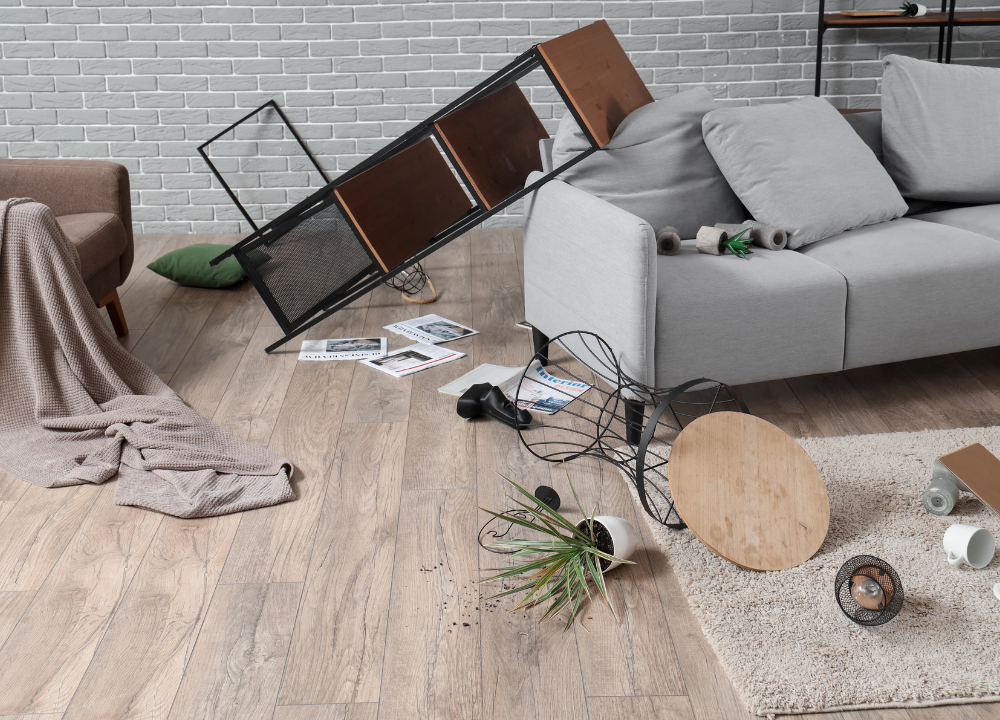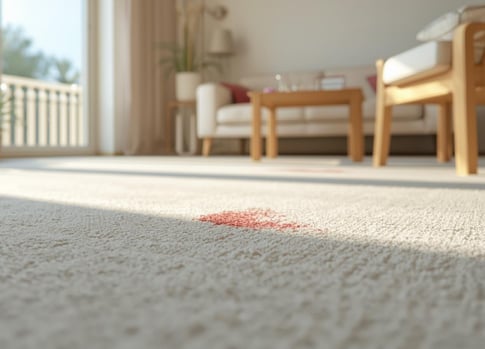
As a host of a holiday apartment or holiday house, you want to offer your guests a pleasant and relaxing stay – while also protecting your property as best as possible. Damage, loss of items or additional cleaning costs can quickly lead to unexpected expenses. A security deposit for your holiday apartment is therefore the most important way to protect yourself as a host.
In this article, you will learn how to set the right security deposit, what damage is covered and how to secure your holiday home in a time-saving and stress-free manner.
Content
- Why a security deposit is essential for holiday apartments
- What damage is covered by a security deposit?
- How to determine the correct deposit amount
- What you should bear in mind when asking for a security deposit
- Options for deposit management
- Refunds and communication with guests
- Tips for greater security: protocols, insurance and service solutions
- Conclusion: How to protect yourself effectively against financial risks
Why a security deposit is essential for holiday apartments
Even with careful guests, accidents can happen: broken glasses, damaged furniture or stains on carpets. With a deposit, you can ensure that you won't be left to foot the bill. The deposit also acts as a preventative measure: guests tend to be (even) more careful with a holiday home when they know that a security deposit has been paid.
What damage is covered by a security deposit?
Typical cases for using the security deposit are:
- Damage to furniture, electrical appliances or decoration
- Stains on carpets, upholstery or bed linen
- Loss of keys or remote controls
- Unpaid additional costs (e.g. electricity, heating, final cleaning)
- Excessive soiling requiring additional cleaning
What you should bear in mind
If you decide to ask for a security deposit, there are a few points you should pay particular attention to:
Put everything in writing: Specify exactly how much the security deposit is, how you will collect it, when it will be refunded, and under what circumstances you will retain it. Make sure your guests are aware of this information and understand it clearly. Also give them proof that the security deposit has been received – for example, if they pay in cash on arrival.
Documentation is crucial: Record the condition of your holiday apartment before arrival, for example with an inventory list and photographs. This will enable you to prove exactly whether and what damage has occurred in the event of damage.
Higher deposit for pets: Stays of guests with dogs or other pets pose a higher risk of damage. It may therefore be advisable to charge these guests a higher deposit.
Only retain the security deposit in serious cases: You cannot simply retain the security deposit if damage occurs. You must be able to provide evidence of the costs incurred – with invoices or other supporting documents.
How to determine the correct deposit amount
The amount should be fair and reasonable. A security deposit that is too high could deter guests, while one that is too low does not provide you with sufficient protection.
In Germany, the security deposit may not exceed three months' net rent – this applies to both long-term rentals and short-term stays. However, such a high security deposit is not recommended for holiday apartments that are only rented out for a few days or a week. In this case, it makes more sense to charge a security deposit of around £200 to £400 or to set it at 10 to 15 per cent of the total booking price for the respective stay.
Options for deposit management
Cash payment or payment by credit card on arrival
If a security deposit has been agreed as security, you can request this in cash or by credit card at the key handover. At the end of the rental period, you will return the deposit after the keys have been handed over, minus any additional costs. If you notice any damage before the departure of the guests, you can offset this against the deposit on site.
Billing together with the rental price
If you don't want to worry about settling the deposit, this service can be settled with your guests in advance together with the rental price. atraveo takes care of this for you automatically – including refunds after check-out.
Refunds and communication with guests
Prompt and transparent refunds ensure satisfied guests and good ratings. Check the holiday home after departure, document any damage and inform the guests immediately.
Digital solutions make refunds easier: once approved, the amount is automatically refunded – without any discussions or paperwork. A note in the booking process (‘The security deposit will be automatically refunded after departure, provided there is no damage’) provides clarity.
Tips for greater security: protocols, insurance and service solutions
In addition to the security deposit, there are other possible protective measures for you:
- Handover reports with photos before and after the stay
- Liability and rent loss insurance
- Full-service providers who professionally manage security deposits, payments and claims
--> This saves you time, reduces risks and allows you to focus on satisfied guests and high occupancy rates.
Conclusion: How to protect yourself effectively against financial risks
The security deposit is a simple but effective way to protect yourself and your holiday property. With the right amount, clear communication and digital management, you not only protect yourself from damage, but also offer your guests a professional, trustworthy booking experience.
FAQ – Security deposit for your holiday apartment
Why is a security deposit essential for holiday apartments?
A deposit protects you from costs incurred due to damage, loss of items or additional cleaning. It also acts as a deterrent: guests will take better care of your accommodation if a security deposit is required.
What damage is covered by the security deposit?
The security deposit covers typical cases such as damaged furniture or electrical appliances, stains on carpets or upholstery, lost keys, unpaid additional costs and excessive dirt. Normal wear and tear is not included.
How do you determine the correct deposit amount?
The amount should be fair and reasonable. For holiday apartments, 200–400 euros or 10–15% of the booking price is usually recommended. It is important to communicate transparently during the booking process.
What do you need to bear in mind when asking for a security deposit?
Put all arrangements in writing, document the condition of the accommodation before arrival and, if necessary, request a higher security deposit for pets. Costs must be occupied in the event of damage.
How can you manage the security deposit?
You can collect the security deposit in cash or by credit card upon arrival, or have it settled in advance together with the rental price. Digital solutions automatically handle collection and refunds.
When and how will the security deposit be refunded?
After departure, you inspect the accommodation, document any damage, and free the security deposit quickly and transparently. Digital systems facilitate automatic refunds without paperwork.
What additional protective measures are there?
Handover reports, photographs, insurance policies, and full-service providers for security deposit and damage management increase your security and reduce your workload.




